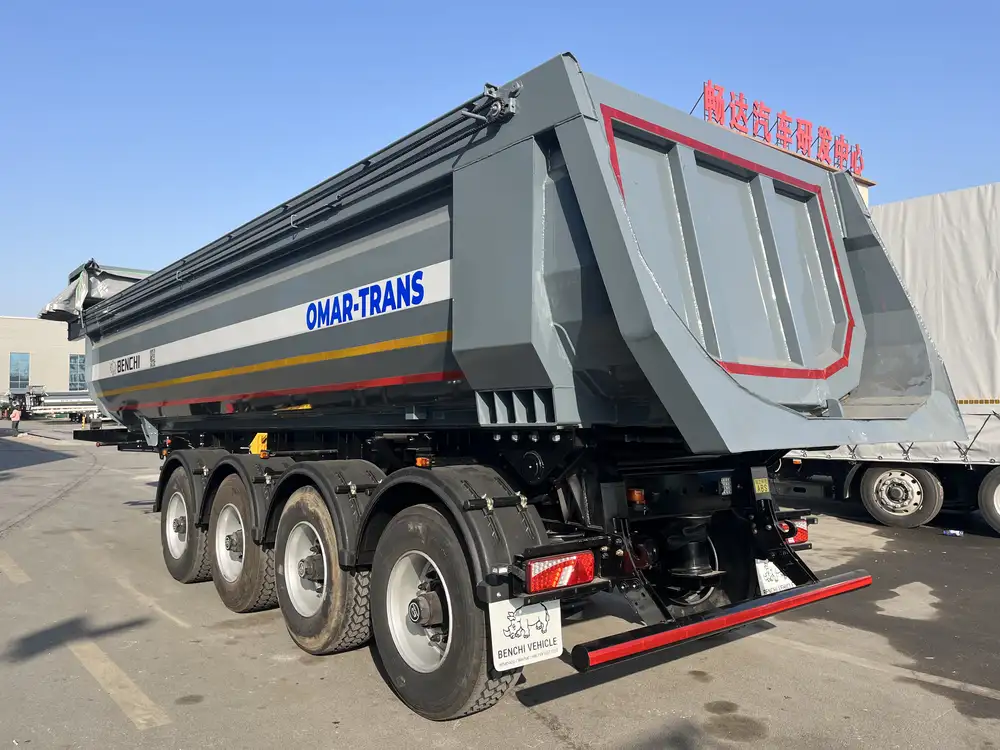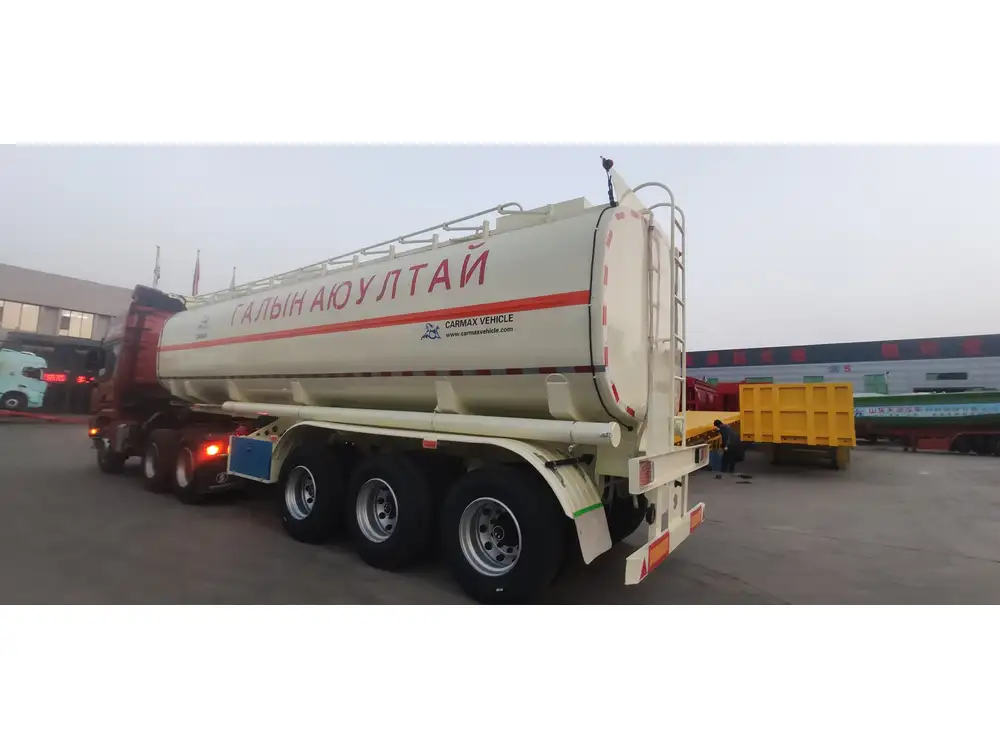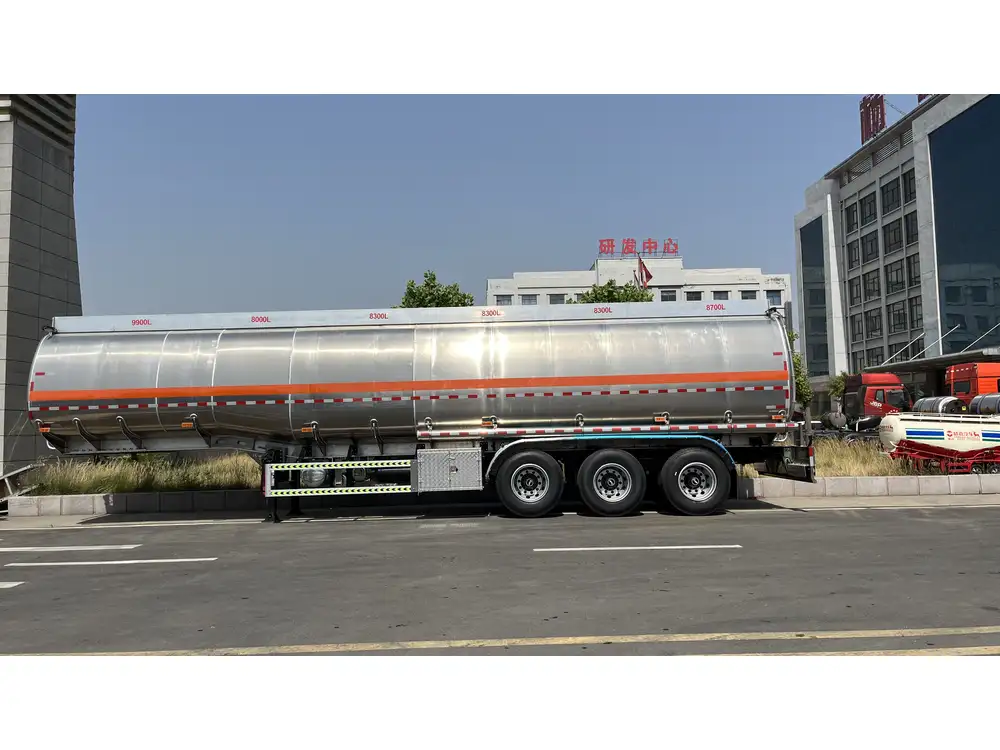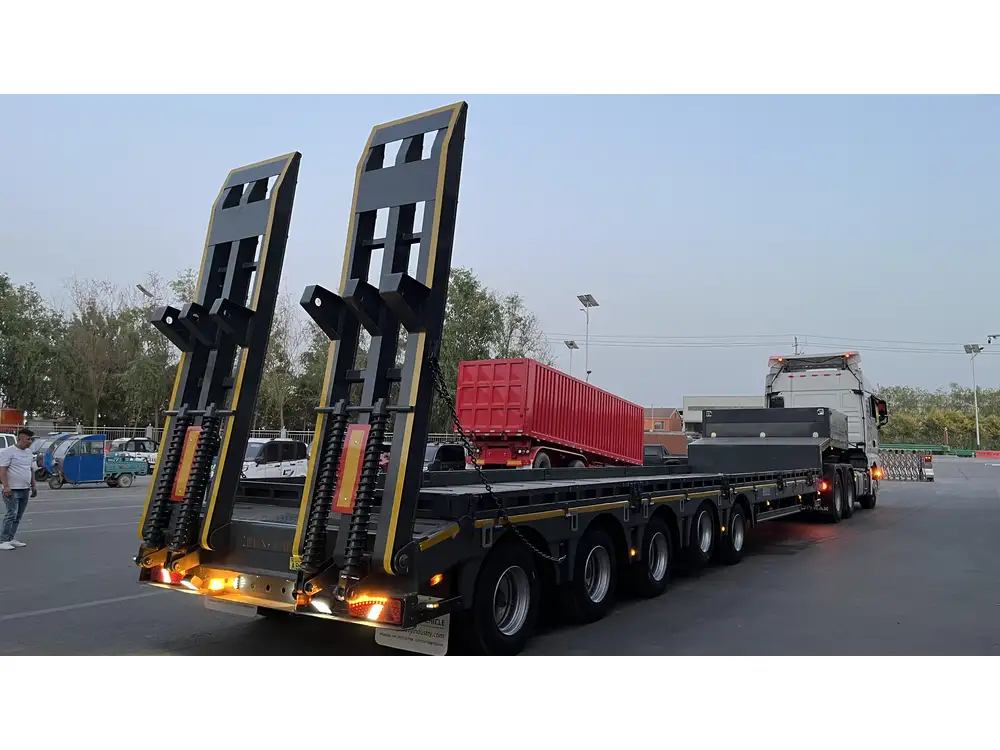In the realm of heavy transportation, ensuring safety and efficiency is paramount. At CarMax Vehicle, we recognize the critical role that Anti-lock Braking Systems (ABS) play in maintaining trailer performance and safety. This comprehensive guide delves into the intricacies of trailer ABS codes, providing you with the knowledge to diagnose, interpret, and address common ABS issues effectively.
Table of Contents
- Introduction to Trailer ABS
- How ABS Works in Trailers
- Decoding Trailer ABS Codes
- Diagnosing ABS Issues
- Troubleshooting and Resolving ABS Codes
- Maintaining Your Trailer’s ABS System
- CarMax Vehicle’s Advanced ABS Solutions
- Conclusion
- Frequently Asked Questions
Introduction to Trailer ABS
Anti-lock Braking Systems (ABS) are integral to modern trailer safety, preventing wheel lock-up during braking and ensuring stability. CarMax Vehicle specializes in manufacturing high-quality ABS systems tailored for various trailer types, enhancing both safety and performance.

How ABS Works in Trailers
ABS in trailers operates by modulating brake pressure to prevent wheels from locking, especially under heavy braking or on slippery surfaces. This modulation allows for maintaining steering control, reducing stopping distances, and enhancing overall handling.
Key Components of Trailer ABS
- Wheel Speed Sensors: Monitor the rotational speed of each wheel.
- Electronic Control Unit (ECU): Processes sensor data to manage brake pressure.
- Valves: Adjust brake pressure based on ECU commands.
- Hydraulic System: Distributes brake pressure to the trailer’s brakes.
Decoding Trailer ABS Codes
ABS codes are diagnostic indicators that alert operators to potential issues within the braking system. Understanding these codes is crucial for timely maintenance and preventing more severe brake failures.

Common ABS Codes and Their Meanings
| ABS Code | Description | Possible Causes |
|---|---|---|
| C101 | Wheel Speed Sensor Fault | Damaged sensor, faulty wiring, or connector issues |
| C102 | ECU Communication Error | Faulty ECU, communication line problems |
| C103 | Hydraulic Pump Failure | Pump malfunction, electrical issues |
| C104 | Brake Pressure Regulation Issue | Valve malfunction, hydraulic fluid leaks |
| C105 | ABS Module Overheating | Excessive friction, inadequate cooling |
| C106 | Low Battery Voltage | Weak battery, poor electrical connections |
| C107 | ABS Activation Circuit Short | Short circuits in activation pathways |
| C108 | Trailer Grounding Issue | Improper grounding, corroded connections |
Note: The above codes are illustrative examples. Refer to your specific ABS system’s manual for accurate coding.
Diagnosing ABS Issues
Effective diagnosis of ABS issues involves a systematic approach to identify and resolve the underlying problems indicated by the ABS codes.
Tools and Equipment Required
- OBD-II Scanner: For reading ABS codes.
- Multimeter: To check electrical connections and sensor outputs.
- Brake Fluid Tester: To assess hydraulic system integrity.
- Hand Tools: For inspecting and accessing ABS components.

Step-by-Step Diagnostic Process
- Scan for ABS Codes: Use an OBD-II scanner compatible with trailer ABS systems to retrieve error codes.
- Interpret the Codes: Refer to the ABS code table to understand the specific issue.
- Visual Inspection: Examine the affected components for visible signs of damage or wear.
- Electrical Testing: Use a multimeter to test sensor outputs and wiring integrity.
- Hydraulic Assessment: Check brake fluid levels and inspect hydraulic lines for leaks.
- Component Testing: Test the functionality of valves, pumps, and the ECU as needed.
- Clear Codes and Test: After addressing the issues, clear the ABS codes and perform a test run to ensure the problem is resolved.
Troubleshooting and Resolving ABS Codes
Once ABS codes are identified, the next step is to troubleshoot and implement solutions to rectify the issues, ensuring the trailer’s braking system operates optimally.
Common Troubleshooting Techniques
- Sensor Inspection and Replacement: Clean or replace faulty wheel speed sensors.
- Wiring Repairs: Fix or replace damaged wiring or connectors to restore signal integrity.
- ECU Reset or Replacement: Reset the ECU or replace it if malfunctions persist.
- Hydraulic System Maintenance: Repair leaks, replace faulty valves, or service the hydraulic pump.
- Electrical System Checks: Ensure proper grounding and check for short circuits.

When to Seek Professional Help
While some ABS issues can be addressed with basic troubleshooting, complex problems involving the ECU or hydraulic systems may require professional expertise. CarMax Vehicle recommends consulting certified technicians for intricate repairs to maintain system integrity and safety.
Maintaining Your Trailer’s ABS System
Regular maintenance of the ABS system is essential to ensure reliability and longevity, reducing the likelihood of unexpected failures and enhancing overall trailer performance.
Regular Maintenance Practices
- Routine Inspections: Regularly inspect ABS components for signs of wear or damage.
- Brake Fluid Replacement: Change brake fluid as per manufacturer recommendations to maintain hydraulic efficiency.
- Sensor Cleaning: Keep wheel speed sensors clean and free from debris to ensure accurate readings.
- Electrical System Checks: Periodically test electrical connections and wiring for integrity.
- Software Updates: Update the ECU firmware to incorporate the latest enhancements and fixes.

Benefits of Proper ABS Maintenance
- Enhanced Safety: Reliable ABS ensures effective braking, reducing the risk of accidents.
- Improved Performance: Well-maintained ABS systems contribute to smoother and more controlled braking.
- Cost Savings: Preventative maintenance can avert costly repairs and extend the lifespan of ABS components.
- Regulatory Compliance: Adhering to maintenance schedules ensures compliance with safety regulations and standards.
CarMax Vehicle’s Advanced ABS Solutions
CarMax Vehicle is at the forefront of ABS technology, providing state-of-the-art solutions designed to meet the demands of modern trailer applications.
Innovative Features
- Adaptive Braking Algorithms: Our ABS systems utilize advanced algorithms that adjust braking force based on real-time conditions.
- Modular Design: Easy integration with various trailer types, offering flexibility and scalability.
- Robust Construction: Built with high-quality materials to withstand harsh operating environments and ensure longevity.
- Smart Diagnostics: Integrated diagnostic tools for real-time monitoring and error reporting.

Comparative Advantages
| Feature | CarMax Vehicle ABS | Standard ABS Systems |
|---|---|---|
| Adaptive Algorithms | Yes | Limited or none |
| Modular Design | Highly adaptable | Fixed configurations |
| Durability | Superior materials | Standard materials |
| Diagnostic Tools | Integrated smart diagnostics | Basic error codes only |
| Customization | Extensive customization options | Limited customization |
CarMax Vehicle’s ABS systems surpass standard offerings by providing enhanced adaptability, durability, and intelligent diagnostic capabilities, ensuring your trailers remain safe and efficient under all conditions.
Conclusion
Understanding and effectively managing trailer ABS codes is essential for maintaining the safety and performance of your trailer systems. CarMax Vehicle is dedicated to providing top-tier ABS solutions, coupled with comprehensive support and maintenance services to keep your fleet running smoothly. By staying informed and proactive in addressing ABS codes, you can ensure reliable braking performance, enhance safety, and optimize operational efficiency.
Frequently Asked Questions
1. What does a trailer ABS code indicate?
ABS codes are diagnostic indicators that signal specific issues within the trailer’s Anti-lock Braking System. They help identify faults in sensors, wiring, hydraulic components, or the ECU, enabling targeted troubleshooting and repairs.
2. How often should I inspect my trailer’s ABS system?
Regular inspections are recommended as part of your routine maintenance schedule. It’s advisable to check the ABS system before long trips, after severe braking incidents, or if you notice any changes in braking performance.
3. Can I drive my trailer if the ABS light is on?
While you can drive with the ABS light illuminated, it’s essential to understand that the ABS may not function correctly, potentially increasing stopping distances and reducing stability during braking. Promptly addressing the issue is crucial for safety.
4. What tools are essential for diagnosing ABS codes?
Key tools include an OBD-II scanner compatible with trailer ABS systems, a multimeter for electrical testing, brake fluid testers, and standard hand tools for component inspections and replacements.
5. How does CarMax Vehicle ensure the reliability of its ABS systems?
CarMax Vehicle employs rigorous testing, uses high-quality materials, integrates advanced technology, and offers comprehensive support services to ensure that our ABS systems deliver consistent and reliable performance across various trailer applications.



